A show of hands—in the age of Spotify, SoundCloud, torrents, and YouTube, does anyone still listen to the radio?
If you’ve been hooking up to your aux in your car stereo all this time, then you might be surprised to find out that a lot of people still tune in. Radio, in some ways, is like print—stations and DJs have been told, over and over since the advent of television, that the medium is dying. They’ve been hearing this for years, but it didn’t really die when people said it was going to die.
It’s really easy to take radio for granted when we conveniently have music on demand, but the format is still kicking, whether you switch between AM and FM, and it will continue to do so as long as the next generations still listen. We were curious about how the industry was adapting to new forms of media popping up all the time, so we rounded up six young DJs to pick their brains. If you’re always tuned in, you might be familiar with the names DJs Debbie Then, Katz Salao, Jam Alas, Stan Sy, Tino Faustino, and Renzo Magnaye, and they’ve got a lot to say about the business they love. (And if not, then we hope this gives you a reason to after you read it.)
How did you get into radio, and why did you want to go into radio?
Debbie: I wanted to get into radio because when I was younger, born and raised in Brunei, my dad used to listen to this Brunei radio station, and he would be so impressed with how the DJ delivered her stuff and he would always listen to the same DJ every day. And me being daddy’s little girl, I always wanted to impress him. I thought, “You know what, dad? I can do that too!” So I started talking back to the DJ, even though I knew she wasn’t listening to me. He’d always tell me to shut up and get my own show.
Jam: Is this Tito Sidney?
D: This is true! This is Tito Sidney!
Renzo: How old were you?
D: I was eight. I was eight, and I would be so upset, I’d be, “One day, dad, one day I will get my own show! And you will be listening to it!” And then I came to the Philippines when I was 16, I auditioned for Magic, and the rest is history.
Tino: I started in 2009, when I was in high school. Mostly because everyone in high school always told me, “You know, you speak English so well. And your name is DJ! So you might as well be a DJ.”
J: I remember when you auditioned! I thought it was cute.
D: Ayy!
J: Thought. Past.
T: Thought. You were wrong. Yeah, so also when I was in school, they always asked me to do the voiceovers for any events that we had. Also hosting, and stuff. And I also really liked music. The one place I could combine my ability to speak English (I don’t wanna brag, but I’m better than most) and my affinity for all things musical was radio. I wasn’t very good at playing my own music, even though I wanted to, so I just played other people’s music. And broadcast them. That’s how I started in radio.

Debbie Then (Magic 89.9) decided to be a radio DJ after dad dared her to get her own radio show… at age eight
R: I basically grew up around radio. Both my parents were radio DJs; my dad and mom were DJs for 99.5 RT.
Stan: Legacy!
R: Yeah. I basically grew up inside a DJ booth. I would hang out with my dad while he did these Sunday RT 40s eating Sun Chips. I’ve always been passionate about performing and entertaining. I didn’t have the body for burlesque, so I kinda decided to go the other path and use my voice.
J: Yes, because radio is the opposite of burlesque.
R: But is it really, though? So I really just enjoyed listening to my dad and my mom. My sister eventually joined later on in her life, and I figured I wanted to do that too, it was fun. It was a great way of just getting out there and making people laugh without having to face a crowd of people and seeing if they’re laughing or not. So it’s just something I naturally gravitated toward.
T: When did you start?
R: I started 2013. I auditioned for Play FM, just when the whole new crew was introduced. So I joined in and they trained me, and I trained under Jing Jamlang. Dirty J, yes.
Katz: I remember listening to you, and you… this guy freakin’ rapes the only clapping button.
R: Yeah, I remember you listening to me before.
K: You just kept pressing the clapping button! Every fucking thing was funny to you!
R: I learned from Tino, to be honest.
T: How dare you! How dare you! …To be fair, I did do that.
R: No jokes, though, seriously the first time I got to radio, I idolized Tino. And then I got to know him. Thanks to radio, I now have an outlet for this need to perform and this need to just express myself without having to compromise my social sanity. And made a solid group of fans.
J: My favorite listening-to-Renzo moment was when we as a station were on our way back from Bohol. We were in the car for three solid hours. Mas matagal pa ‘yung car ride from the airport back to the station, kaysa doon sa mismong flight. And we were just listening to Renzo. And Tina Ryan, an institution of radio—she’s been in radio for longer than I’ve been alive, I’m not even kidding, she was the first female radio DJ in the Philippines—and she goes, “This boy!” And I’m like, “Okay, okay. I’m ready.” And she’s like, “…sounds so good!” And I’m like, “Oh, that’s Renzo.” She’s like, “Ohh, the Magnaye kid!” The one who can’t suck!
R: I have proven that wrong many times! Thank you, mom. But it runs in the family, if you know what I mean. Third generation. Like I’ve never been to the States, but I speak with such an American accent because I grew up around cartoons.
J: Cartoons!
T: No joke, though, it really does influence the way we speak. My mom would ask me, “Where did you learn that word?” “Scooby-Doo.”
K: That’s right, though, your English is on point. You don’t have to worry about moments that I have, getting barok.
T: Katz is wonderful on air, but we’ll get to that later. Stan?
S: Actually, my radio story started with Tino. We auditioned in the same class in Magic.
R: Tino seems to be the catalyst.
S: And at the time, di pa kami magkasingtangkad noon. He was much shorter than he is now. I remember when Aaron [Atayde] was rattling off who was in that class, Tino was the last name called and my heart was so broken. I knew that last spot, which I wanted, went to him.
T: We couldn’t be together.
S: Eventually, though, we became friends when I started training sa Mellow. So like, among all of you, I’m the odd man out, because I didn’t train under the TRPI umbrella. But eventually, being in the same corridor as everybody, you get to meet everybody and you know, this whole friendship began, it was honestly one of the best things about my experience. Which started way, way back, because I remember my first distinct memories of wanting to be in radio, is playing my walkman and playing Millennium, the Backstreet Boys album and segueing from song to song.
J: You adorable human!
T: You would adlib between songs?
S: I would adlib between “I Want It That Way” and “Show Me The Meaning Of Being Lonely.” This is a cassette tape, and cassette tapes had intervals of like seven, eight seconds, and you can say a lot in seven to eight seconds. I listened to Campus Radio and one of my influences there was Joe Spinner (now Koji Morales) and John Hendrix. And these two guys gave a talk at Xavier when I was in third year, and they were giving their talk. And I was completely influenced, turned 180 from wanting to pursue a law career to being in radio.
J: Wooow. Imagine how much money you just gave up.
S: I know, right? Imagine the dishonor to the Chinese family!
J: …On your cow! Do you have a cow?
S: No, I don’t have a cow. I wish I did, though.
J: If you were a lawyer you would have been able to afford this cow.
S: So Campus went under before I could even apply, and the Magic thing happened, and that didn’t pan out either. A year later, I got an opportunity with Mellow, and then things just took off from there. I started weekends muna.
T: The Morning After.
S: Yeah, which is like fucking horrible if you’re a college student. Imagine going through senior year, partying and shit. (at Katz) You know this.
K: Huh?
J: Partying? Katz?
K: I’m an angel, what are you talking about?
S: Side story: I joined JMA, the pinaka-party org of UP. I tried joining JMA. Magka-batch naman kami ni Katz noon. Guess who got in and guess who didn’t!
K: Whaaat? We’re super responsible in marketing!
J: So I feel like you take note of every single person in this room, and you just never enter a competition another one of us is in.
S: It’s more like there’s a whole lot of history that, when you look back on it now in retrospect, you’re like, oh my God, this is how things come together. Which is really interesting, if you ask me. So I did the weekend mornings, which took a lot out of me physically and emotionally, and then I did the weekend afternoons, which was a lot of fun because we got to call the show the Twisted Tag Team, or the Twisted TT. Imagine getting to say that on air, on every adlib.
T: The Twisted TT, huh.
S: Yes. One of my favorite times on air. And then I got moved to my current slot, which is 4-8 pm.
T: Current slot, huh.
S: Yes. Current slot.
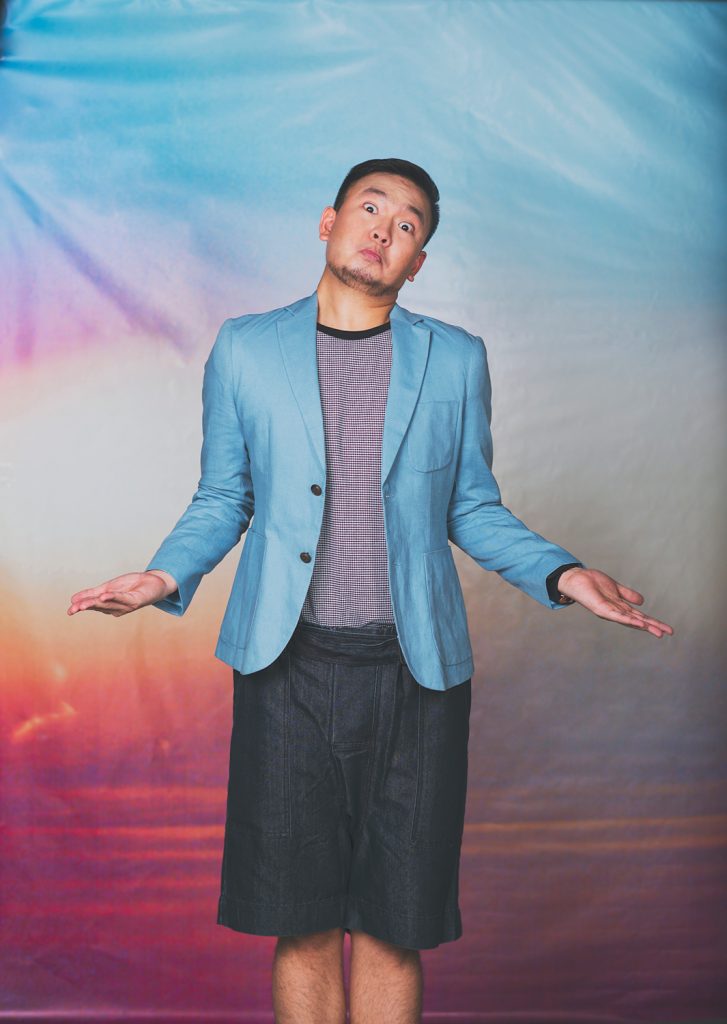
Stan Sy (last heard on Mellow 94.7) changed his mind from wanting to be a lawyer to wanting to be in radio after DJs gave a talk in his high school, giving up a lot of money
K: Well… I was a junior jock, then I wasn’t anymore.
J: (everyone applauds) Katz for president!
T: I feel like there’s a three-hour epic waiting.
K: No, uh… how is it ba? I like to talk, a lot, and I didn’t think it would be a career or anything. I remember I was with my boyfriend at the time, auditioned for junior jocks, then I met all these fools, and I was like, “Damn, I’m not interesting enough.”
J: Are you kidding?
K: I remember sitting in CJ [Rivera]’s office and I was like, “Ceej, I don’t know who I am as a person.” And then he was like, “Well, that’s a problem!”
J: Such a CJ thing to say!
K: When we all became junior jocks, it was only because it was very cool to be a junior jock in college. And I was like, I can pronounce things well! Sometimes! When I don’t accidentally say adjast, you know, and I was thinking I could do this! With training and everything, it seemed super interesting to be a weirdo. Everyone’s just trying to pretend to be cool…
T: And failing!
J: We’re so lame!
K: And then you realize that’s the whole world! It’s so tiring, I mean, we’re the cool ones, actually. The ones who have to try.
First profound thing in the whole conversation.
T: That’s Katz, though.
R: Wait, you mean Twisted TT wasn’t profound?
T: That’s really what Katz does, ever since the beginning. I remember on our first show together, the first thing she asks me, “What are your dreams in life?” The first time we board together on the junior jocks show, the first thing she asks me. “What are your dreams? What do you wanna do with your life?” I was like, “Damn, girl, I don’t even know what I’m doing later!”
J: My first memory of Katz was her saying, “I really really really really really really really wanna be Miss Universe.”
D: Yeah, I remember that too!
J: And she said, “No, I’m serious. I really really really really really wanna be Miss Universe.” And I remember thinking to myself, this is a girl who knows what she wants!
K: And also I didn’t, so that’s why I kept shouting I really wanted to be Miss Universe, because now I have no choice but to try. Because I said it to everybody!
J: Oh my god, so you’ve been my inspiration all through these years, but it was a lie!
K: It’s really just faking it ’til you making it. Making it?
T: (everyone applauds) Katz Salao on radio, everybody! That’s my partner!
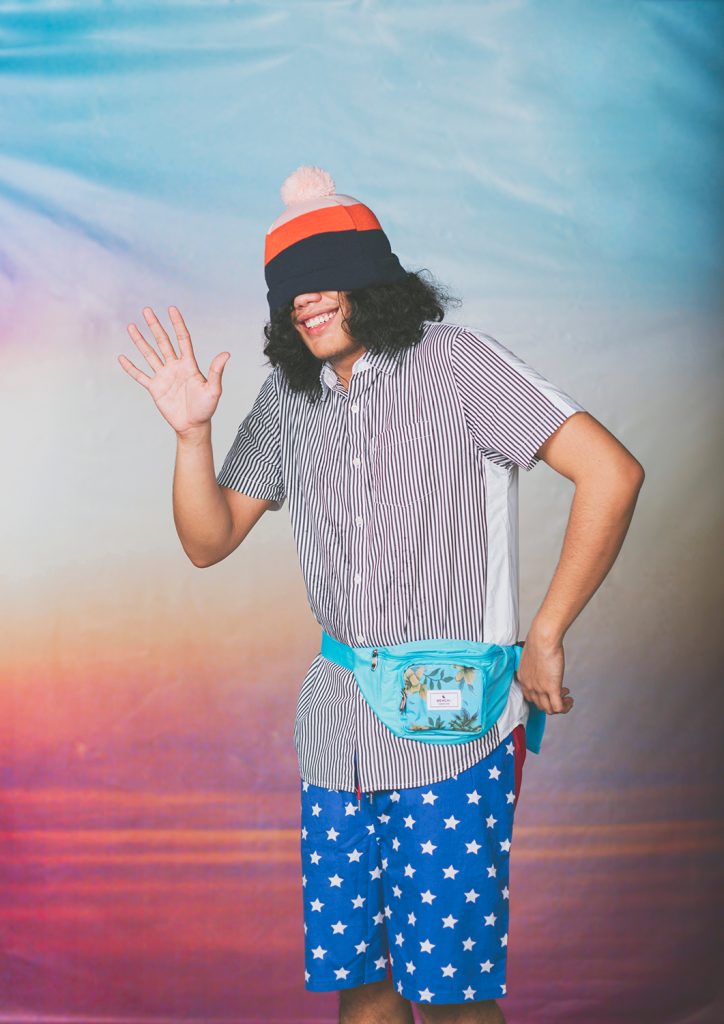
Renzo Magnaye (99.5 Play FM) is a third-generation radio DJ, he pretty much grew up in a radio station, and was probably born in one
J: My story’s kinda different because everybody here’s like “oh, radio is great, blah blah, people were telling me to audition.” My story kinda goes like one of my friends was a junior jock, Alex, she said, “Honey, what are you doing this weekend?” Then I said, “Absolutely nothing. I have no social life! Take me with you!” And she said, “Actually, I’m going to be working at the junior jock auditions, and I just wanted you to hang out. But you might as well come along.” So I said, “Okay, I’ll show up.” And the day before that, she calls me, she’s like, “Can you bring your resume na rin?”
T: Bring a resume?
J: She’s like, “Yeah, apparently you can’t hang out unless you’re auditioning.” So I was like, I found a biodata, I filled it out, showed up to auditions. I remember, thinking back to what I look like, I remember what I looked like. And it was very, very weird. My bangs were up to my nose.
T: Ah, I remember.
J: You don’t remember, I auditioned before you!
T: But you still look that!
J: And then I show up there, and I’m in like a yellow jumper and my hair’s up to here, and I didn’t know any of the music at all. We had to go through six or seven different songs for me to figure out just one song. And as soon as I hear what song it is, it’s Angels and Airwaves, “Everything’s Magic,” I started dancing and I start singing, and they’re like, “Akala ko ba wala kang alam?” They were like, “Oh, okay! This one’s weird! Let’s keep her!” So now I’m here, I’ve been in radio since I was 15, so that’s like a good eight, nine years, you can do the math.
K: Angels and Airwaves was 15 years ago?
J: No.
T: She was 15!
J: I was 15!
T: Katz Salao, ladies and gentlemen!
J: And then for the first few years, I was afraid of the board. And then, one of our trainers, Pat Jamlang, like he laid down the law. He said, “Are you afraid, huh, Jam? Are you afraid?” I was like, “Excuse me?” And he was like, “Are you a pussy, Jam? Are you a pussy?” “Excuuuse me?” I learned the board in a month.
[pull_quote]”It’s an art form because people think it’s limiting if you don’t have a visual aspect, but then you technically have more freedom in terms of people’s imaginations. So what they can’t see, you can just make up for with how you present your show, with how you decide to present it.”[/pull_quote]
D: The Jamlang brothers, I swear.
T: Yeah.
J: By a month, I mean like four, five sessions, and they were all with Debbie. We were both junior jocks. I just kinda stayed for so long, it’s like when you have a squatter living on your land, and by law you can’t make them leave after a certain amount of time because you didn’t, you know… I was that squatter. They’re like, “Okay, she’s been here for so long, it’s pretty weird if we make her leave!”
R: It kinda feels like… I was trained by Jing Jamlang, you guys were trained by Pat Jamlang, it’s like we’re godbrothers in radio.
D: Yeeeah!
T: Jam wasn’t accepted at the auditions, she was kept.
S: They tolerated her.
J: They just kept tolerating her… me. Cheers!
D: And now she’s a DJ! If you wanna be a DJ…
J: Be a pain in the ass!
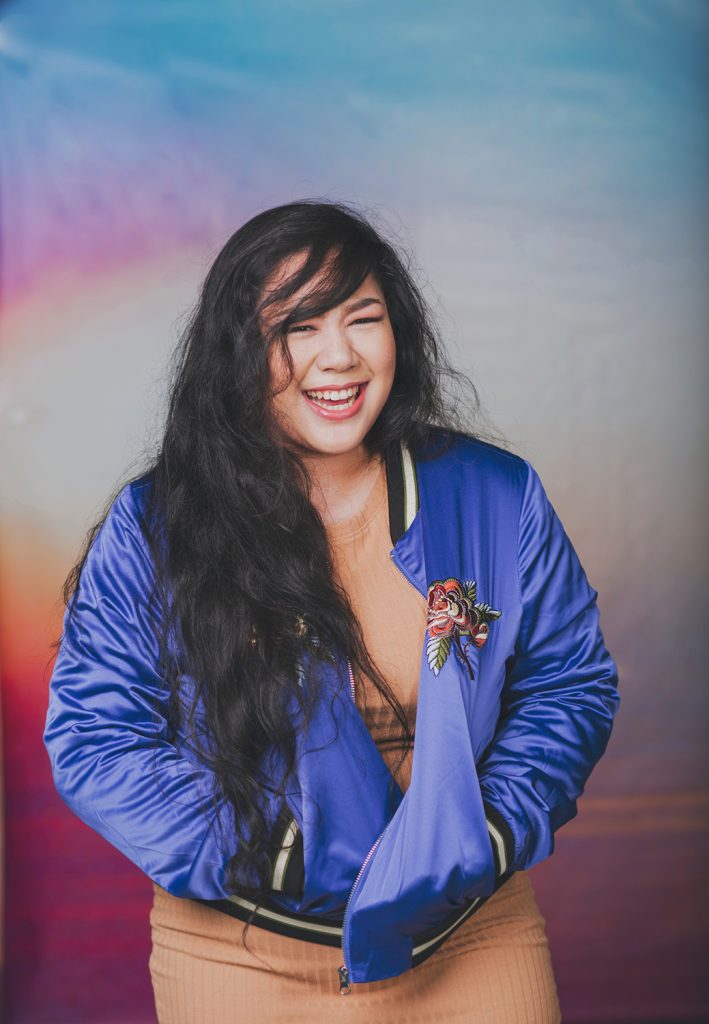
Jam Alas (Magic 89.9) only became a radio DJ when she was asked to hang out (not try out) at the Magic Junior Jock auditions
Do you guys think radio is an art form? Why, or why not?
R: My dad has always described radio as the theater of the mind.
T: So does Pat Jamlang.
D: So does Jing Jamlang!
K: So does Katz Salao. (everyone laughs)
R: Yeah, it’s an art form because people think it’s limiting if you don’t have a visual aspect, but then you technically have more freedom in terms of people’s imaginations. So what they can’t see, you can just make up for with how you present your show, with how you decide to present it.
For example, a really old trick in the book is if you’re giving away tickets, for example, and you don’t have the tickets physically with you, you can just literally grab any piece of paper that’s near you and just rub it together near the mic and say, “I have the tickets in my hand right now!” And people are gonna be like, “Oh, he has the tickets in his hand right now!” No, I’m just holding the log of the commercials and everything. I feel like it’s an art form if you know how to do it well.
S: You know, just to add to that, when I was in UP, si Ma’am Pinky Aseron, who’s the voice of the LRT and Globe…
K: The best evah!
…Who I ran into the other day.
S: The one who tells you that the subscriber cannot be reached, please try again later.
T: That’s her?
S: That’s her. One of the first things she told us in class was that radio is the most ubiquitous form of media, which is to say that it’s the most personal because it’s everywhere. So it’s not as profound as “the theater of the mind,” but it struck me because it was so personal. And that’s exactly what radio is. There’s an art that goes into making it personal for everyone. So I always tell SJs when I’m training them, “Don’t say ‘you guys,’ because we’re not addressing a crowd. I’m talking to you, I’m talking to you.” And it’s very special. It’s like when you say, “It’s you, me, and the music ’til 8 pm.” There’s something so intimate about it.
D: Landi eh.
T: Ikaw, ako, at ang awit. (everyone laughs)
S: Right? It’s so personal! They really go the extra mile to make it feel like you’re the only one who’s listening, even though there are a lot of other people who are tuned in. And that, that’s art.
K: And art is life. And life is beautiful.
S: Miss Universe, everyone! (everyone applauds)
J: So I Googled art form, and according to Google, an art form is: first, a conventionally-established form of artistic composition, such as the novel, sonata, or sonnet.
T: Webster’s Dictionary defines “art form”…
J: An art form is any activity regarded as a medium of imaginative or creative self-expression.
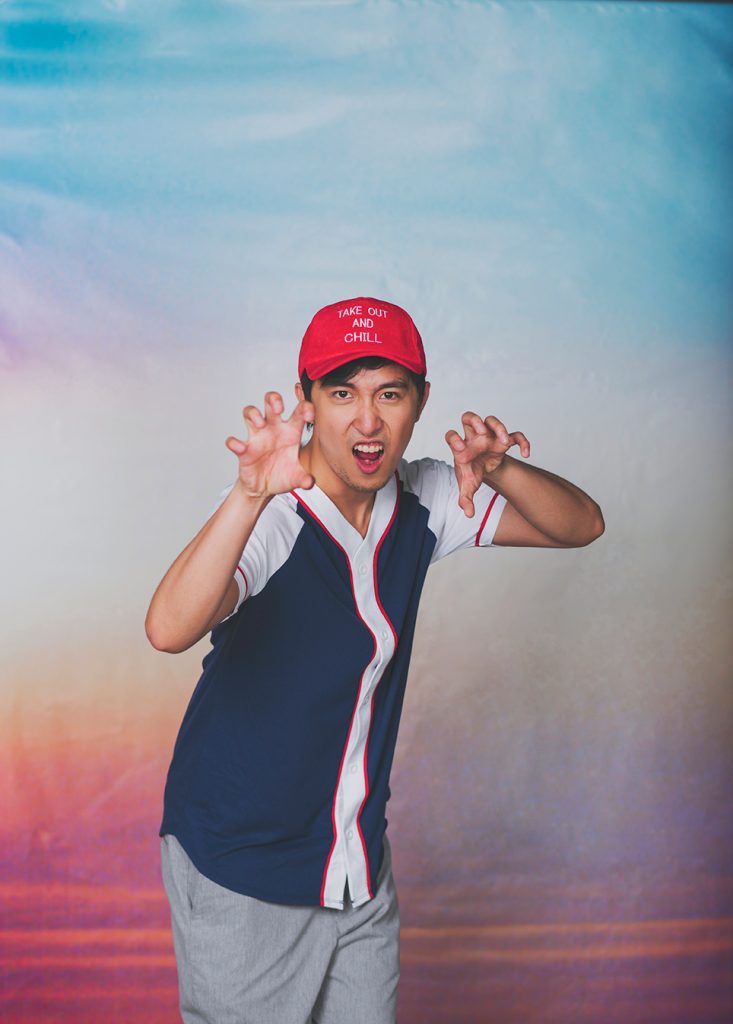
DJ “Tino” Faustino (99.5 Play FM), who all his life, people told should be on the radio because he spoke good English and his name was already “DJ”
So does it? Is it?
J: So yes. My answer is yes.
T: I think that, you know, art form is, in essence, how you express yourself as a person.
J: Yeah, I just said that in my definition!
T: I’m just adding on to it! It’s how everyone expresses themselves, and on radio we do that with our voices. Everyone mentioned that there’s a whole creative aspect to it, there’s theater of the mind, we’re on FM radio, we mostly do advertising and stuff like that. We don’t exactly create scenarios, we don’t tell stories, unless we’re on the talk radio station. But that’s our own form of expression. Everyone has their own rhythm to it, everyone has their own cadence, everyone has their own voice, and that in itself is an expression. So I really do believe it’s an art form. And even with the stories you tell, even if you’re on talk radio or long form radio, the kind of stories that you tell, the kind of stories you’re able to project, to get other people to listen to, those are your own little pieces of art.
But it’s getting harder and harder to do.
K: I’m raising my hand.
T: You’re barely raising your hand, dude.
K: Do you ever think that every day you’re just performing? Like you leave your house and you’re just performing? Like you’re not really authentically yourself? And I feel like being on radio, sometimes when you have a shitty day, bad news broke, and yet we still have to perform and pretend that we’re happy, that is a kind of art form that radio DJs, specifically us—once the mic turns off, we’re sad. I’m always fascinated when we used to watch the DJs in the booth, sina Sam YG and they’re like so funny, and they’re close on air, and once the mic turns off, nothing happened. It’s not actually as fun, and so because art is expression and it is a performance, it’s always gonna be that kind.
We had a DJ who never sat down, and that was his thing. Never sitting down the whole three hours of the show, he was just standing up, because that was how he expressed himself as a radio DJ. But outside of that, he didn’t handle life that way. I think.
[pull_quote]”Radio is the most ubiquitous form of media, which is to say that it’s the most personal because it’s everywhere. So it’s not as profound as “the theater of the mind,” but it struck me because it was so personal. And that’s exactly what radio is. There’s an art that goes into making it personal for everyone.”[/pull_quote]
J: Nakatayo siya lagi. (laughs)
T: Pati sa kotse. (laughs)
K: I was telling Tino this, everything in the entire world has been said, thought of, nothing is actually completely original, all the news bits—why would they wanna listen to us saying our news bit on the radio if they can twit… twit it?
T: Katz Salao, ladies and gentlemen!
K: If they can check Twitter, I mean! And for us to find our ways to make it sound interesting, sad, happy, that is an art in itself. Life is beautiful.
D: I had a conversation once with a musician…
J: Sino ‘to?
D: I’m not gonna say who the musician is, but he insulted me. He said radio DJs are just people who can’t make music. That’s why they introduce it, because they don’t have any original… that’s why it upset me! I look at radio like it’s some holy thing, you know, it is such a beautiful craft.
And that’s why I just fucking called him out on his shit and said, “No! You’re incorrect! You can’t say that, coming from the point where you write and produce your own music, well good for you! But our stuff? A lot of our segments, they’re unscripted, everything that we have to come up with, this is five days a week of boarding. You have to keep everything fresh and different, and imagine doing this for a set of years. You write one song, and you keep singing that song over and over again. Your moment of inspiration comes out of this one moment in time when you’re writing stuff, and that is art in its own form. It’s something very, very original.” But that doesn’t mean that radio is not art; just because we don’t make our own music…
J: Ano ‘yun, on the spot lahat… tatlong oras?
But it was done before, though.
J: But you had a band come in.
Exactly!
J: It wasn’t the announcer.
D: But having to make your own segments, having to keep things fresh all the time, having a set of opinions that you can just speak so beautifully and explain it in the most relatable way, and having to do this with a partner, and being able to jive with someone else, putting in the work for the technical stuff when it comes to segueing, even if it’s the simplest form of creating music and making it sound as smooth as possible, that’s still an artwork in its own right.
So having that being said to me, it just felt so insulting. And when I explained everything—art comes in so many different ways. It’s just how you create something, even if it’s not making new music, but putting things together, that can be an art form in its own light. There’s always a way you can spin it to show your signature style and what makes you different. But that’s still art. So yes, radio is very much an art form.
R: To add to that, I feel like radio is making something out of a lot of nothing. Sometimes, there’s nothing to talk about. Sometimes, nothing’s happening. And you still have to create just as an interesting show than you did the day before, when you did have a lot of stuff to do. And getting that done is the most difficult thing at times. The struggle is there, but when you turn on the mic, and you do what you do, you can’t make it seem that way. It has to be just as seamless as you did the day before.
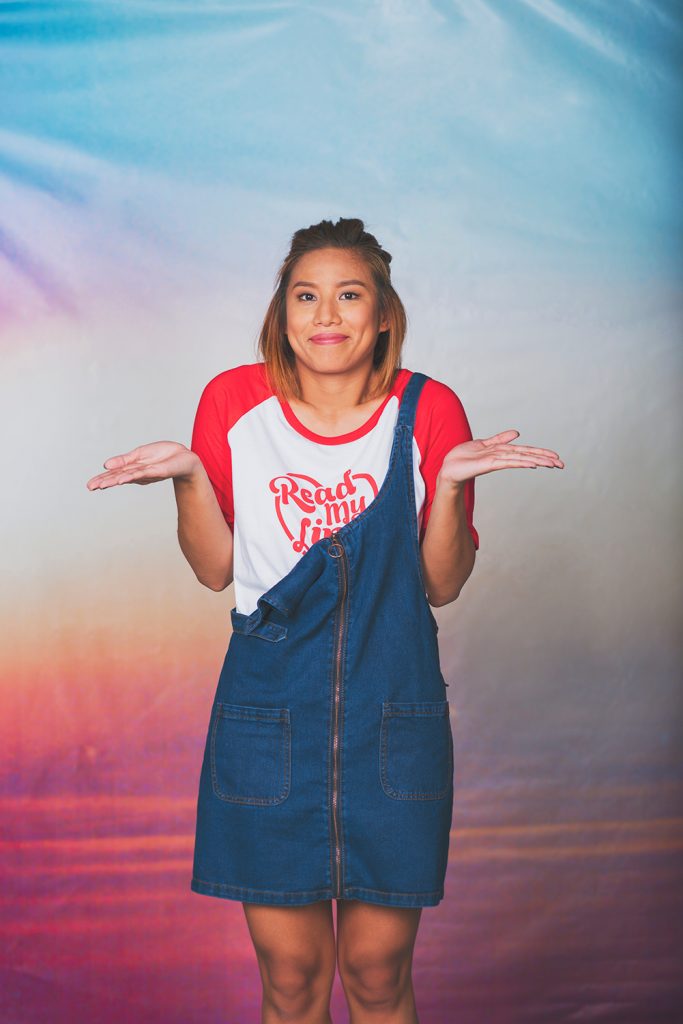
Katz Salao (99.5 Play FM) didn’t really know what she wanted in life, so she told everyone she was gonna be Miss Universe
I wanted to touch on what Stan said about radio being the most ubiquitous, but I want to ask you your opinion…
T: Can you stop using that word? What does it mean? (everyone laughs)
K: Google it!
D: Spell! Spell!
J: Okay, okay, I Googled it!
K: It means everywhere. Encompassing.
J: Present, appearing, or found everywhere.
T: My favorite Michelle Branch song. (everyone laughs)
I fucking hate you right now.
J: Demo, demo!
T: (sings) “You’re ubiquitous to me…” (everyone laughs)
K: This is gold.
T: It’s what we do. We tell stupid jokes for money.
I wanted to ask you what you thought the state of radio is right now. Why do you think the younger generation is still listening to you, even though they can easily download or stream music online?
K: Because I showed my boobs on Facebook and I was like, “I’m on Play FM.” (everyone laughs)
T: Radio is an art form! No, I believe that everyone is looking for music, always looking for music. It’s just a lot easier to get that nowadays, but radio is the bedrock. It’s something that will always be there. The thing about radio is that there’s always a song playing at all times of the day. You can find one all the time. Like, for example, you don’t have internet, you don’t have music online, there’s always gonna be something playing for you on the radio. I think it’s the foundation, but I think it’s just getting a lot harder to promote music using the radio. It used to be where everyone discovered it, but now not so much—it’s just kinda like we reinforce what’s already popular.
J: It just becomes a place where you vote for it.
T: It becomes a place to, you know, talk about the music you enjoy with other people.
D: I think that radio sort of connects the listeners to the artist. Sure, you can look for all of this stuff online, but having someone group together and vote for a certain type of song or artist on a radio station, it makes you feel special that your efforts are being broadcasted. So I still feel it really does help in a sense, where you’re putting people together and giving them something to look forward to.
J: My idea of it is twofold, and it’s very different. First it’s because the DJ aspect is something you can’t replicate on Spotify. It’s very different. For example, in the Philippines, the traffic is insane. The average daily commute is at least 45 minutes.
T: What?
J: For the country. Some people live in the same building. So it’s probably worse for a lot of people; you can get up to 45 minutes. Fine, you can spend three hours with your playlist or you could tune into a radio station and have this person keep you company, and do their best to keep you entertained, tell you about the news, what happened, and it’s like having a friend in your car with you. It’s like not having to drive home alone.
Stan: Yeah, at the end of the day, it’s relatable pa rin eh. It’s more relatable when you have someone who you can identify with. And when it comes to my story, I’ve really come to terms with it. I used to really quell all my interests, I tried to be a generic Jack who people could just relate to, but eventually I realized, no, I am a dork. I love wrestling, I love basketball, I’ll let it out there. If I wanna do wrestling catchphrases on air, I’ll fucking do it because that’s what people look for. They look for someone who represents them. And that’s what I always wanted—I wanted someone to look up to and be like, “Hey, that Chinoy kid is representing me.” I wanna be that Chinoy guy for that other Chinoy kid. That’s why I always make it a point to say that, you know what, I’m Chinese, and I grew up in a very strict background and shit, you know?
[pull_quote]”Having to make your own segments, having to keep things fresh all the time, being able to jive with someone else, putting in the work for the technical stuff when it comes to segueing, even if it’s the simplest form of creating music and making it sound as smooth as possible—that’s still an artwork in its own right.”[/pull_quote]
J: I feel like it boils down to the fact that radio is free. Let’s face it, nobody has any money—
R: Not even the DJs. (everyone laughs)
J: —that’s true! But yeah, you have to pay for Spotify, you have to pay for songs on iTunes with money or with your integrity when you download them from Limewire or something.
T: (innocently) What’s Limewire?
S: Hey, piracy is stealing. Stealing is against the law.
J: Basta free siya, ‘yun, yay, radio is free!
T: That’s one of the things radio has to contend with nowadays. While yes, it’s more personal in the sense that there’s someone talking to you, some people don’t want that because their personal experience comes with the music. And if I’m not gonna play the music you want to hear at that very moment, which is what everyone gets nowadays, instant satisfaction, then why would I listen to you?
So that’s why I also think talk radio is getting really big nowadays, because the focus is becoming the stories that DJs can tell. But of course, there’s also still that market who doesn’t wanna listen to those DJs who only have their stories to tell, and they just wanna listen to music. But that’s why I think radio is shifting in that direction. That’s why we have podcasts, that’s why we have conversational radio, that’s why we have talk radio. That’s where it’s going.
J: I think it’s because we’re all really lonely, and we really like to pretend there are people we know are interesting again.
K: Sometimes, I think it’s gonna stay because people like being greeted on air. I mean, they just like being acknowledged and made special.
T: They see a news camera on the street, and they’re always like, “Hi mom!” You just want to see yourself there. “Mom, I’m on TV!”
K: Yeah, as simple as, “Hey to the Uber driver!” You light up their day. I think that’s my favorite part of being on the radio. I have that power, and also, I wanna do it a lot, it’s not costing me a lot, but the returns are so great.
D: And extra brownie points from your crushes when you greet your crush on the radio.
K: We’ve been trying to greet Liza Soberano for the longest time.
T: Yeah, we try to greet her every other week. Just in case she listens one day.
J: We tried a thing, a retweet kind of thing, and it got over 500 retweets and she still hasn’t noticed us.
I wanna ask you guys what you feel is the edge your generation of DJs have. What do you bring to the table?
K: Whaaaat. I gotta go… (laughs)
J: I think in terms of our market, we can probably relate to them more because we are our own market. So in terms of relatability, in terms of things you’re interested in, in terms of content and passions and things you care about, the series you watch, how often you’ve been on Twitter the past 20 minutes, it’s very, very similar to the people who are already listening to you.
I feel like the turnover of topics, maybe it’s not because of our generation, but because of the various types of technology available to the people of our age. Our turnover of news, of topics, [is] quicker, plus at the same time, you can probably verify that story much quicker. You never have to talk about a rumor on air. Well, almost. You can usually verify.
Maybe to help answer your question, are there any problems in the industry that you guys feel your generation is best equipped to deal with?
S: Yeah, to take off from that point, this generation is more in tune with the idea of a personal brand. And when you say personal brand, it’s how you carry yourself not just outside, but online. And to give an example, most, if not all of us here are pretty vocal online about what we like, what we don’t like, our experiences, politics in particular, given the climate in our country right now, and it’s become really empowering for me to see, say, the likes of you guys, my friends, speaking out about this because it gives me the freedom to stray away from what I’ve been taught, which is you don’t tell anyone about your political views. You don’t tell anyone about what you really feel about something because you’re a public figure.
I think that’s changing. We live in a time where whether or not you’re a public figure is no longer important; if you have a platform to say something, you go ahead and say it. Because you’re a public figure, you have influence, you have reach, and to a certain extent, you have clout. And if you don’t use that clout properly, you’re not really using it at all. I think that’s something the older generation is only coming to terms with. Either that, or they fail to understand that. And that, to me, is really disappointing, because they don’t realize the power they have at their disposal.
R: Actually, I disagree with that. I think they really utilize the power of radio to inflict change upon their generation. I mean, we had like Radyo Veritas, we had everything [back then]…
But that wasn’t personal branding, though.
R: It wasn’t personal branding, but you know, they still used their clout, they still used their reach to influence a lot of people.
S: But that’s different in the sense that they did it through traditional media. We are more in tune with non-traditional media. Like if I tweet, you know what, I’m hitting the streets tonight because of what’s going on, I don’t need to say who’s with me, but the fact that, say, Renzo Magnaye tweeted this out, he’s in the streets right now, check this guy out, he cares, he gives a shit. If I am a listener of Renzo, for example, that says a lot to me about how much he cares about what’s going on.
K: And in my mind, he is a public figure, and yet he chooses to fight for this.
J: To take a side.
K: And I think we’re a little less afraid, and also more afraid to ruin our reputations. I don’t know. Before, I was so afraid to speak my mind and then I realized because I wanted to get somewhere–and it’s not that I’m anywhere right now—but it’s just that being more real to myself and having a personal brand of positivity and not agreeing when there’s injustice, and all those things, you kind of also have a responsibility to people who are tuned in to you. You don’t have to do it on your radio station, you know, and we don’t at all.
R: Yeah. I think this is more in the context of social media than it is on radio. Just to answer the original question, what gives us an edge, I feel like we’re part of not only the generation that demands to be heard, just wants their opinion out there; we’re also part of the most self-aware generation we’ve had in a long time. We are now calling out our parents, we’re now calling out authority figures.
J: Calling out your past self, even.
R: Yeah. We’re telling ourselves that sometimes, it’s okay to be sad. And we’re not supposed to feel bad about that. I feel like this generation is so drastically different from the one that came before, that listeners from our generation can tell the difference between someone who doesn’t know them, basically, compared to someone who’s just trying to do the things they’ve been doing for the longest time.
K: I get it. If you’re a young DJ from our generation trying to relate to people and an older DJ trying to relate to this generation, you’ll know the difference. Like you’ll really see it.
R: That’s why I think one of the best qualities you can have as a radio DJ is if you are self-aware, if you are meta enough, if you can look at society and culture from an outsider’s perspective and see it as something you can just manipulate, then you will do so well.
I think the edge that we have, in the context of radio, is that we have a lot more access to other people’s stories. We have the reach of social media. We have more reach towards people that wanna share what they wanna say.
Before, like the only way you can do that was to call up the station, once someone calls up, you can’t call up the station anymore because they’re already talking to someone. Now, we have social media, now we have a lot more stories to reach, we have a lot more conversations that we can have, and that provides for a lot more content than I guess what was available back in the day.
Yeah, I think our reach is much bigger. Limited to just radio, radio’s reach is much smaller just because there are other avenues. But the stories radio can tell and the stories radio is able to tell, that’s where they’ve grown a lot, because of the power of social media and the internet.
[pull_quote]”We also have to learn to adapt on our own, there is a challenge, there is a leap to be made in terms of administration and your bosses, but I feel like because of all these challenges, we’re learning. Like when was the last time you had encountered a form of media that was one-dimensional? Every single newspaper, every single magazine has a Twitter, Instagram, Snapchat account.”[/pull_quote]
How do you see the future of the business?
R: Okay, so I feel like I don’t wanna talk shit about anyone. So we had a talk recently in UP… Jam, do you wanna tell them how my talk went?
J: So we went up there, and he’s like, “Radio is dying. It’s not dead, but it’s dying. Haha.”
R: But it was more than that. It was more like…
J: But those were actual words that you said.
K: Ms. Pinky said that also, right?
She’s always saying that.
S: Yeah.
K: Actually, all our radio professors always say that radio is dying. And I think it’s been dying since TV was born.
J: Kawawa naman si radio.
T: But I think it’s just radio as a broadcast medium. Radio, in a sense that you have a show, you have your own show, it’s only purely audio. I don’t think it’s dying. Radio needs to evolve, but it’s not gonna die.
S: That’s a great point. Because I come from a place where I’ve been wanting to say that for the longest time, that people just need to adapt, that people just need to move with the times and all that. There’s a pessimistic side of me that thinks eventually, we’re the ones that are gonna be talked about the way we talked about the previous generation. Na tayo yung ‘di naka-adapt. I guess the circle of life…
It’s the wheel of fortune.
S: Yes, but on the flip side, there’s the fact that the business can’t seem to move further or move past where it’s grown comfortable. Everyone is stuck in [old] practices and culture.
T: Everyone’s trying to run a station the same way that they used to do.
R: That was my biggest point. For the future of radio, in terms of on-air talent and personalities, looking at this generation, I’m not scared at all. I am so excited for what this generation can bring in terms of what they have to say, what they can produce on the air. What worries me is if 20 years down the line, we still have the same executives pushing the same rules, same practices, same agendas, trying to do things the exact same way when it was changed four years ago, and they refused to change because they think it works the same way this whole time.
T: The numbers won’t lie. Eventually, someone will take over from our generation.
R: Yeah. It’s just that I feel like there’s a lot that can be done with radio now, and one of the huge problems with it now is…
K: …is we have to move with the administration.
R: …the previous generation has still not accepted that there’s a vast change in culture, a vast change in audience, and a way to do things. And you can’t just treat it the same way you treated radio in the 1980s.
T: I think they see that it’s not working, they just don’t know what to do with it yet.
R: Because they refuse to listen sometimes.
K: Did you have a meeting with them that I wasn’t invited to?
J: No, we just—yeah. But I’m pretty excited, because I think this is a real turning point because it’s either we adapt, or we die. If you use history for example, after World War II, the population was down, but at the same time, the soldiers came home (this is in the American setting) industrial boom. Work boom. Everyone was suddenly earning so much more money, like unprecedented success for people because they had to learn to adapt. They had to learn to work. You have to learn new things from the same challenges that are killing you. Only women were left behind, and because women were left behind, women had to learn jobs men were doing.
These are the challenges we’re facing: we also have to learn to adapt on our own, there is a challenge, there is a leap to be made in terms of, yes, administration and your bosses, but I feel like because of all these challenges, we’re learning. Like when was the last time you had encountered a form of media that was one-dimensional? Every single newspaper, every single magazine has a Twitter, Instagram, Snapchat account.
T: You can’t exist in the world without it.
J: Exactly! And that didn’t exist before, and we’re finding ways to just kind of adapt. I think that was my point, I’m sorry, I went into the Industrial Revolution. (laughs)
K: I think why I mentioned radio is dying but it’s not dead when you said that is because my point was, they’ve been saying radio is dying for a long, long, long time. But I was like, “Oo nga no, it is,” since I was in college, high school, and now that I’m actually working in there, I realize it’s dying in a sense that there’s competition, it’s dying in a sense that your radio is your option one, but then you also have option two, which is your Spotify… or silence. But it’s still going to be there. It’s dying in a sense that it’s not anymore number one, but it’s not zero also. So and with this, with all of our brains, we’re only six of the many, many smart, cool kids who are weirdos, who wanna change the world and stuff. So there’s no fear, dude. I don’t fear it anymore.
Maybe we’re gonna, like, one day find a way to make money, AKA monetize commercials…
R: But commercials are monetized.
K: No, I mean DJs mismo. I was thinking, people automatically tune out when it’s commercial time. It’s not like someone’s gonna go, “Oh my god, it’s commercials, let’s make it louder.” What if there’s another way to make that different? What if someone thinks of another strategy to make commercials more lovable?
J: To look forward to them?
K: Something like that.
[pull_quote]”It’s dying in a sense that it’s not anymore number one, but it’s not zero also. So and with this, with all of our brains, we’re only six of the many, many smart, cool kids who are weirdos, who wanna change the world and stuff. So there’s no fear, dude. I don’t fear it anymore.”[/pull_quote]
D: Well, I see it as like nobody’s ever gonna find a commercial entertaining. It’s the person that will be there at the end of the commercial. So you, yourself as a person, I don’t believe in radio dying. Like you said, there’s so many amazing brains at this table alone, but having said that, we know there are so many talented radio DJs that just know how to show everything in their best light, how to make things different.
So the best you can do to make sure this doesn’t die or fade away is if you give them something that Spotify or the internet can’t. And that’s something to look forward to: a personality, a friend, someone you willingly come back to after the commercial, after your favorite song that you requested, because you know there’s someone human behind this machine that’s gonna give you something you want, and can help you out explaining things that you never really knew.
So it helps to be a really, really good DJ in order to make sure that stuff like this doesn’t fade out, you know? That’s what I believe could really help this industry, and that’s the people within it.
S: Cue John Mayer’s “Waiting On The World To Change.”
R: Personally, I believe that radio as a broadcast medium is live music. Well, I mean, playing music 24/7. I think that is eventually going to die, because people just aren’t going to need that anymore. Because you have music at your fingertips 24/7. What I think you need to go into is conversations.
J: Talk radio.
R: Yeah, to get your personality out there.
J: Personality-based radio.
R: Yeah, personality-based radio. Story-based radio. You know, they want stories.
K: Can’t think it’s gonna die eh. It’s a frequency. I mean, technically speaking, it’s the easiest form of entertainment, and cheapest. And free.
T: Like how many people have radios at home nowadays?
K: A lot!
J: You’d be surprised.
T: I’d be surprised, but they’re getting less and less.
K: It comes with phones now.
T: But do you use it?
K: Yes.
T: How often? Because you work in radio.
S: You monitor it.
K: As in I took a radio class that explained this. That people in the farm have radios. It’s the easiest to reach.
T: In time, it will eventually die out. That’s what I’m saying.
K: Not in my lifetime, I feel.
T: But in terms of the future and what I think radio needs to be to survive, I don’t really think that the broadcast form of advertising radio, quick-punch, in and out, I don’t think it’s gonna work forever. I think brands of each individual stations really need to identify themselves. It’s like, you know, NU 107 had their own identity.
J: Yeah, Jam 88.3. Play FM is actually doing really well, in terms of identifying with people. I am a millennial, and I listen to 99.5.
T: I think eventually, brands need to establish their identities more if they want to survive a little longer in this industry, and eventually move towards content-based.
K: Make your own stuff and be interesting.
This story originally appeared in a shorter form in the January-February 2017 issue.
Photos by Hub Pacheco, makeup by Camille Villaruel, styled by Grace de Luna, assisted by Desiree Pore


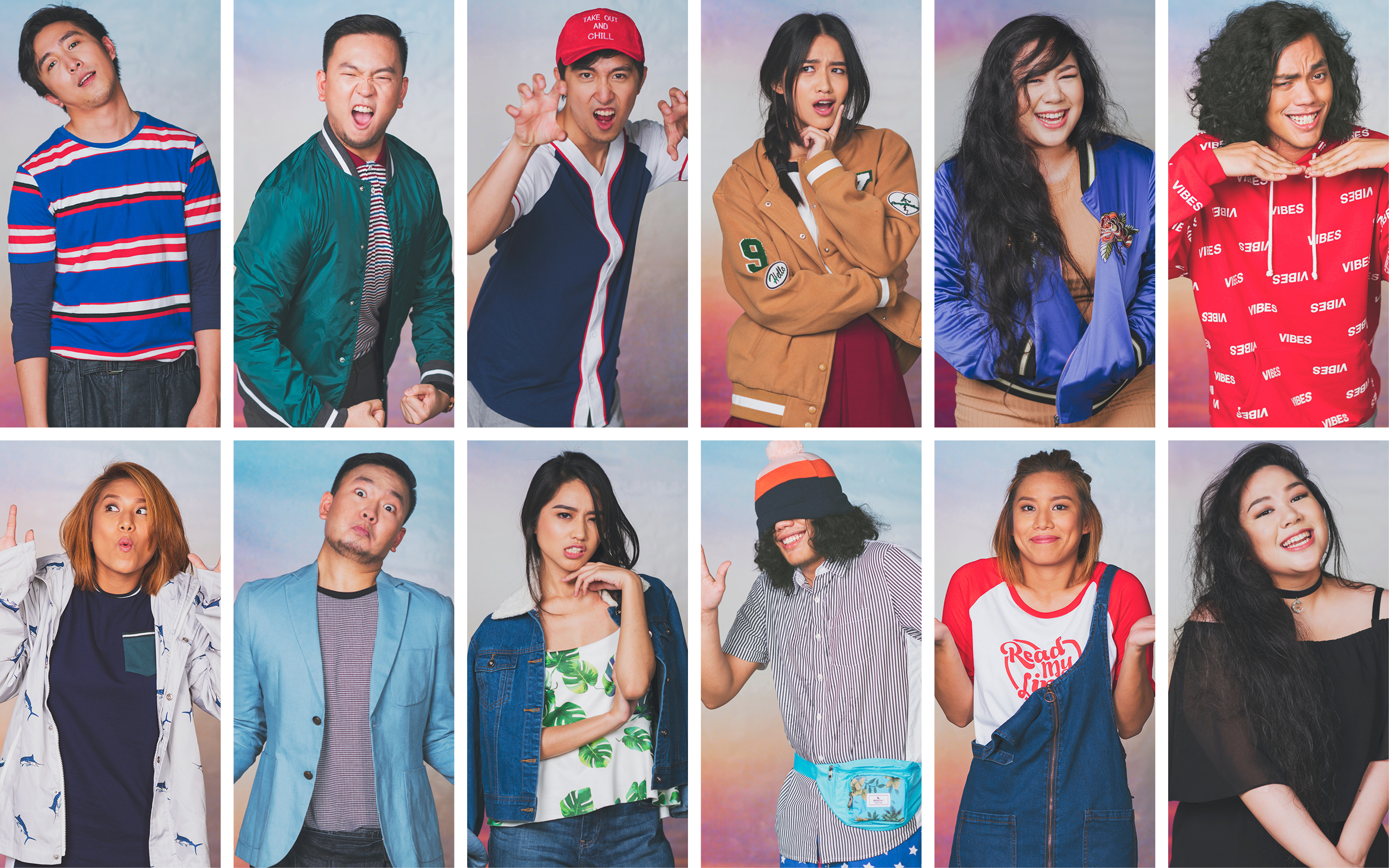













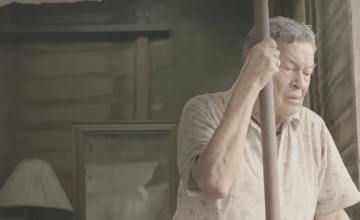
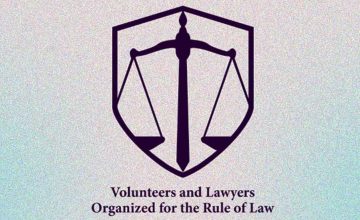
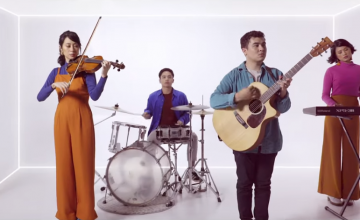






Comments